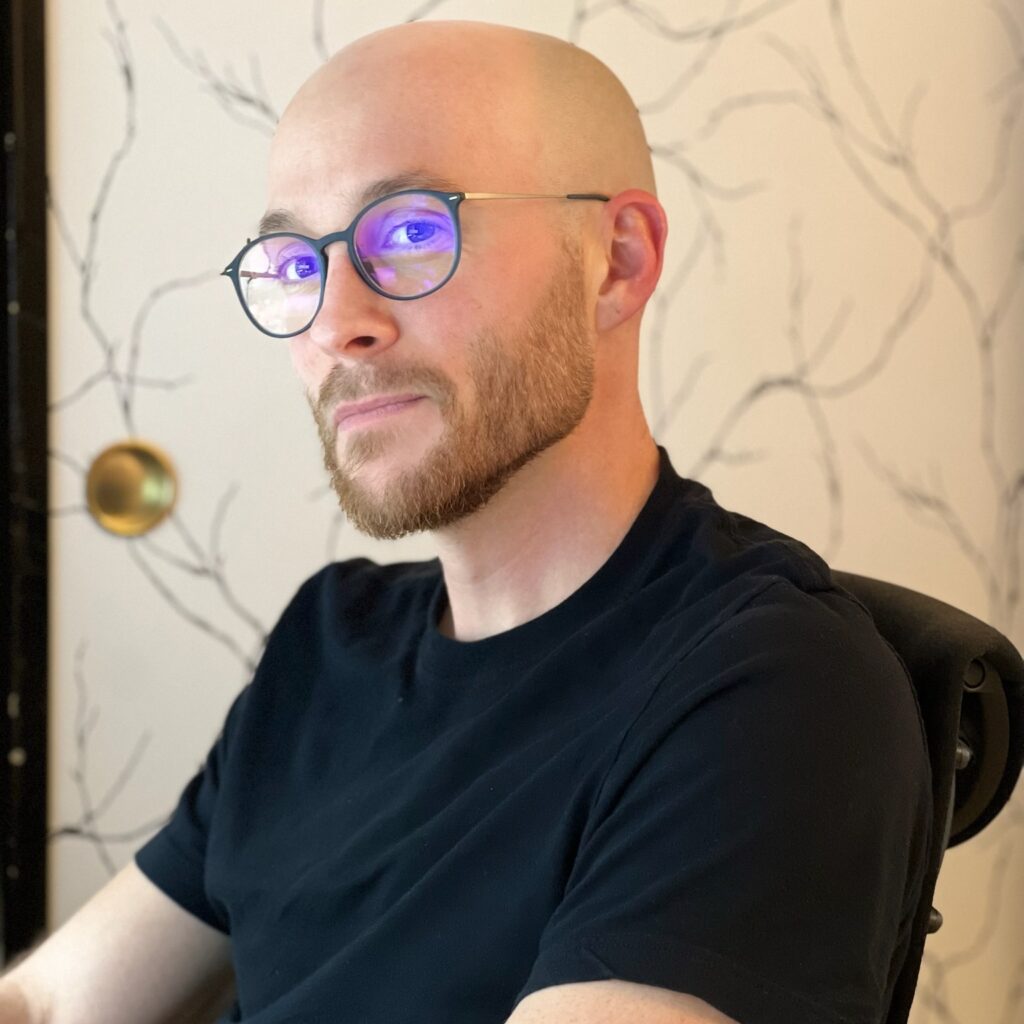
Science from the inside out
I am a scientist and engineer working across biology, physics, and information theory. My research explores how the structure of life generates the conditions of time, measurement, individuality, and motion.
I am currently completing my PhD in Biosystems Engineering at UC Davis, with prior degrees in philosophy and anthropology from UC Berkeley. My work spans theoretical biology, mathematical computing, complex systems, and the foundations of science.View my CV here.
Research & Publications
In this section, you’ll find publications and ongoing research projects.
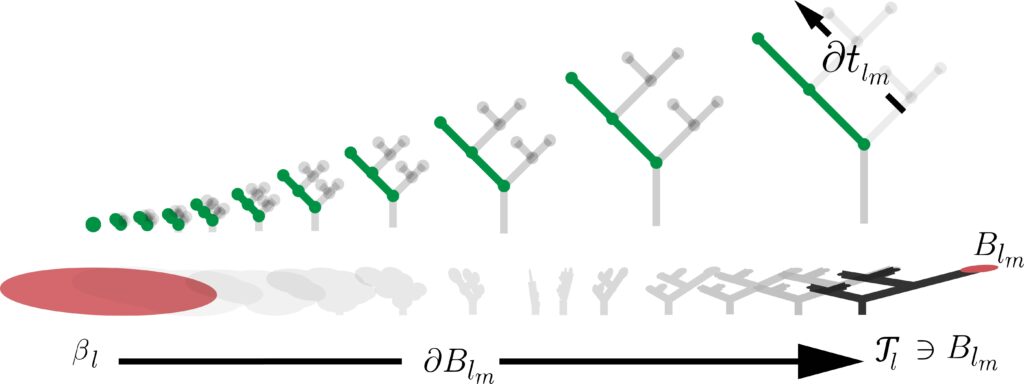
Description: Coauthored with Raissa D’Souza, this paper derives time from foundational princples of biology. Emergent from life, time is a multifractal geometry with as many dimensions as there are living things.
Journal: The Journal of Theoretical Biology (2025)
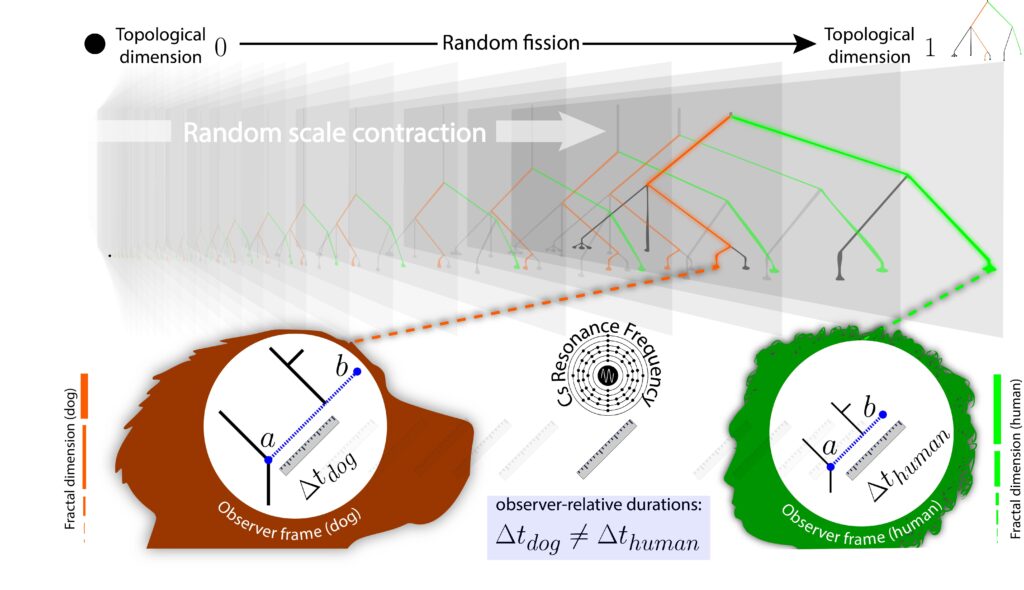
Description: This paper uses the information geometry of life to develop a theory of measurement, showing that a multifractal conception of time not only permits measurement, but grounds it more rigorously in biological structure. Observation is not external, but alive.
Journal: BioSystems (2025)
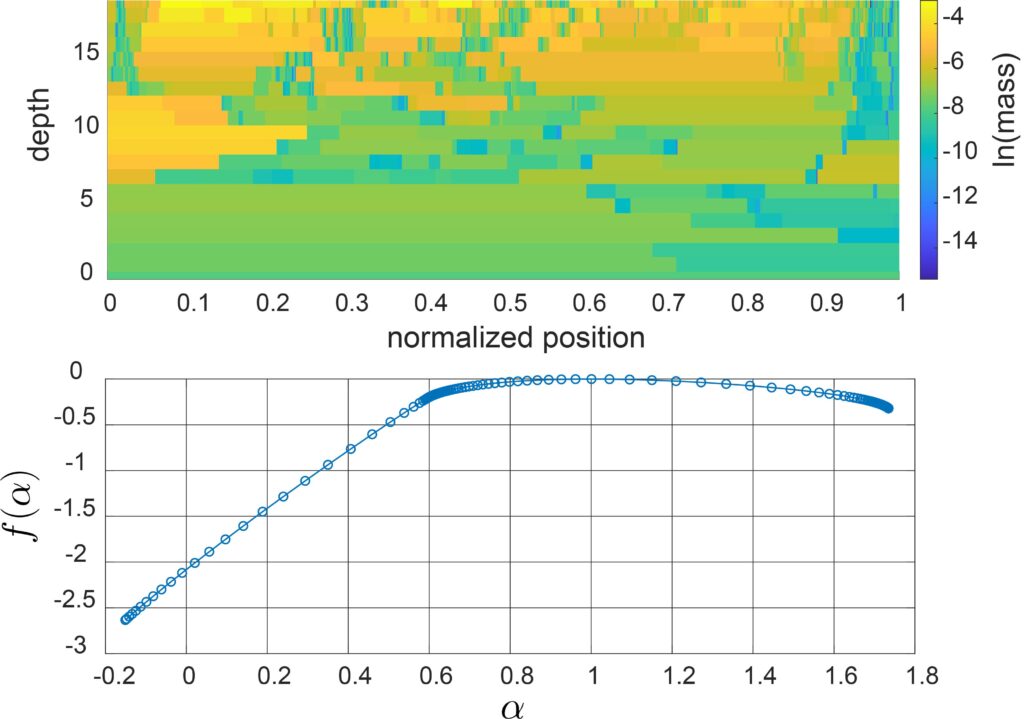
Description: This paper rigorously proves that the tree of life from (Hudnall & D’Souza, 2025) is multifractal, unifying branching processes and random iterated function systems (RIFS) within a single formalism.
Journal: Under review at The Journal of Mathematical Biology (November 2025)
Title: Individuality and the living tree of life: A mathematical theory of form
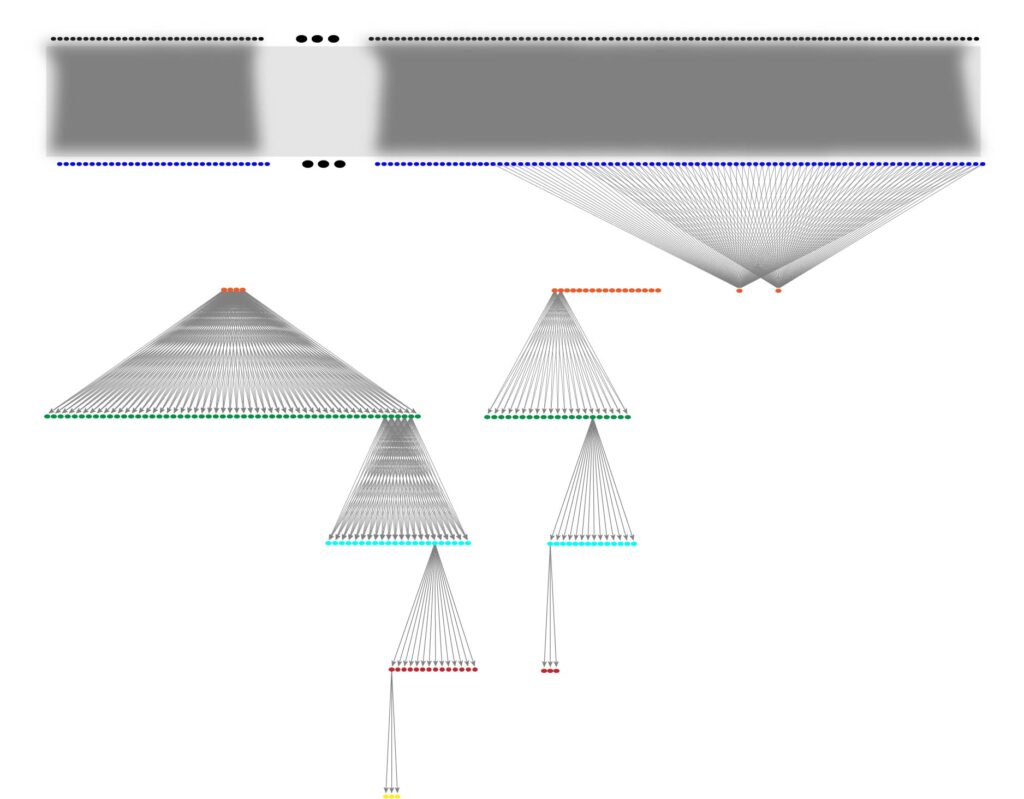
Description: This paper shows how a mathematically precise and biologically universal theory of individuality follows from the theory of multifractal time. Like gravity, individuality is not a property of objects, but a relational field between them.
Status: In preparation (September 2025)
Title: Three principles of life: The biological foundations of multifractal time
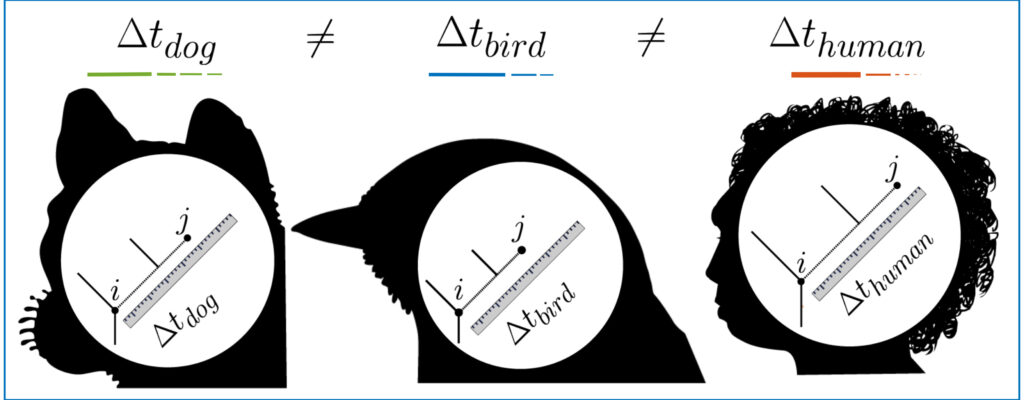
Description: This paper demonstrates that three principles—nestedness, duality, and randomness—are foundational to modern biology. Already widely accepted and widely applied, together they imply time is a multifractal structure emergent from life.
Status: In preparation (September 2025)
Title: The living tree of life and the physics of motion: First steps in biokinematics
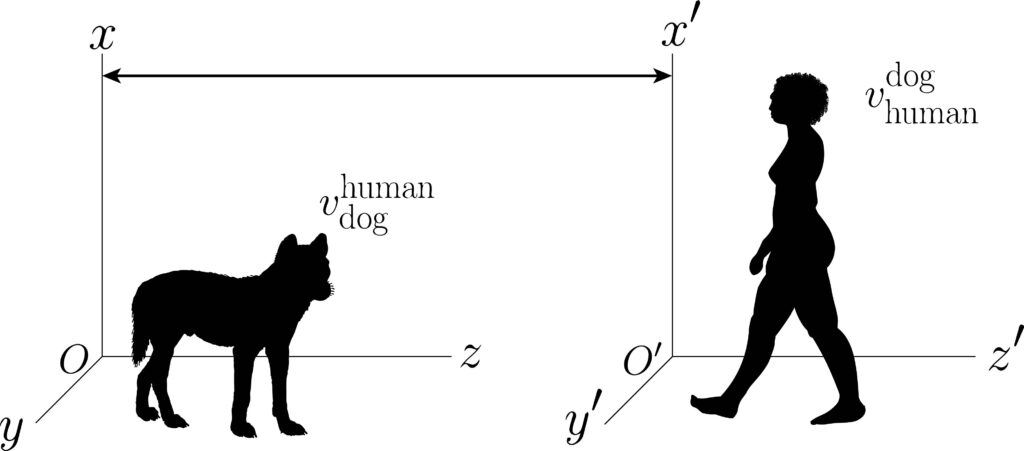
Description: This paper renders multifractal time empirically testable by integrating it into the equations of special relativity, initiating a new field—biokinematics—that extends relativity to account for the biological structure of observers.
Status: In preparation (September 2025)
Title: On the biological origin of time: Dimensional analysis and consistency with science
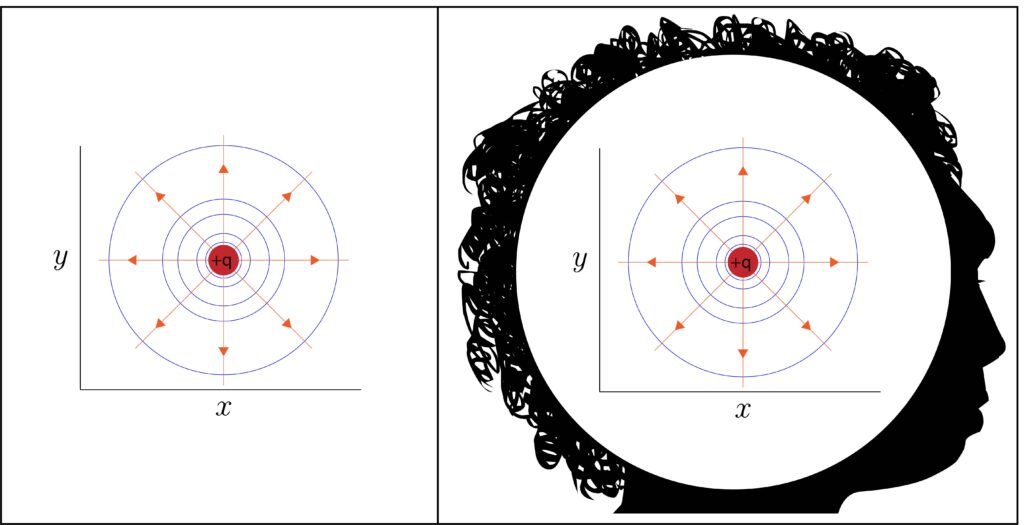
Description: This paper reveals how scientific units are biologically rooted. Using dimensional analysis, it shows how modern measurement conceals its dependence on the living conditions it claims to abstract away. Once units are properly interpreted, a biological origin of time is fully compatible with established science. Nothing is broken, only expanded.
Status: In preparation (September 2025)
Visual explainers
These animations and figures offer a visual entry point in the framework: because life is nested, dualistic, and stochastic it is multifractal; time emerges from its structure; and information theory makes it measurable.
The tree of life is multifractal
Time is therefore a function of biology
It is measurable via information theory
As dimensionless ratios
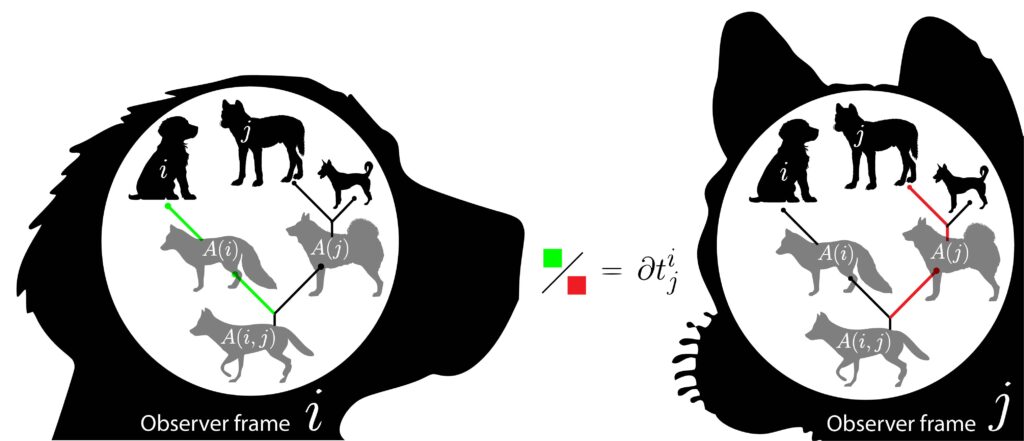
Thus preserving operational units
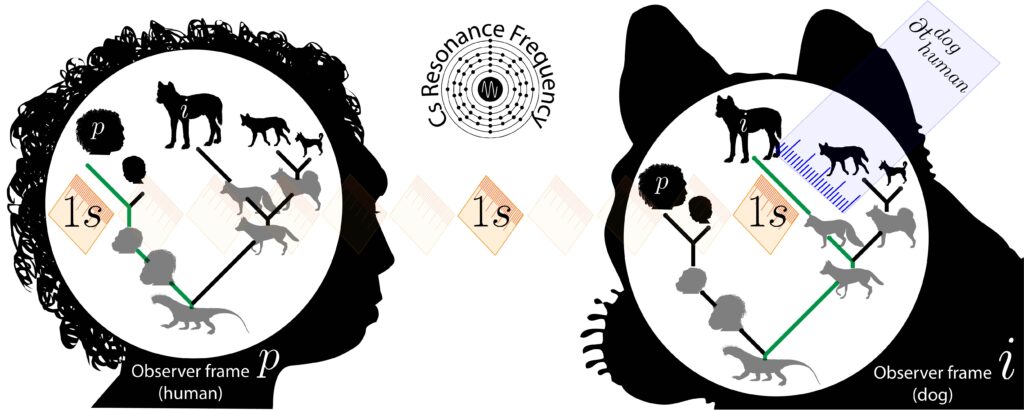
And yielding testable predictions
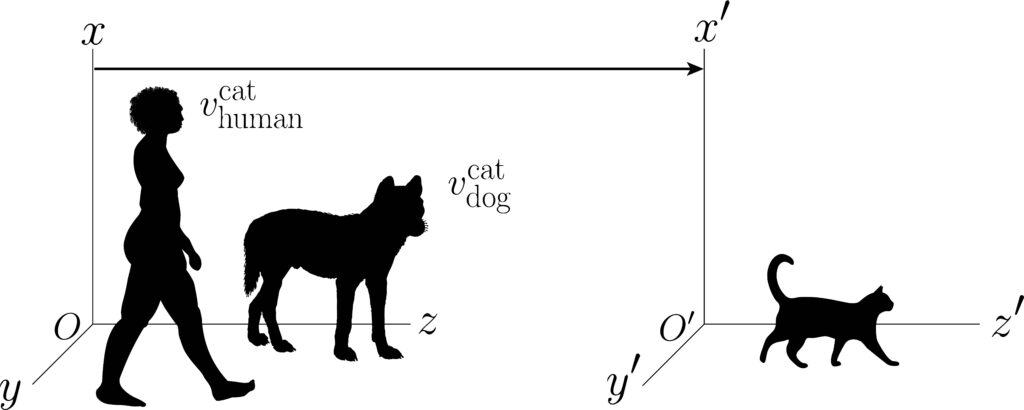
Teaching
I bring a cross-disciplinary perspective to teaching. My approach emphasizes foundational understanding, conceptual clarity, and the ability to connect ideas across fields. With 22 quarters of teaching experience and two Outstanding TA Awards, I aim to make complex topics accessible and engaging for students from all backgrounds.
Courses taught
ECS 253 / MAE 253 – Network Theory and Applications TA – UC Davis, Spring 2025 (Graduate level)
Supported instruction in advanced mathematical modeling of networks across biological, physical, social, and engineered systems. Provided technical support on problem sets covering network growth models, graph theory, spectral partitioning, control theory, and spreading processes. Assisted students in applying computational tools for network analysis and simulation, and offered feedback on course projects integrating theory with real-world data. Presented lectures on graph visualization techniques and temporal networks.
EBS 265 – Design and Analysis of Engineering Experiments TA – UC Davis, Spring 2023 (Graduate level)
Supported instruction in experimental design and statistical modeling for biological systems. Topics included linear and polynomial regression, ANOVA, model selection, fixed and random effects, repeated measures, factorial and split-plot designs, and the use of statistical software packages. Provided individualized feedback to help students bridge statistical theory with experimental practice.
EBS 127 – Mass Transfer and Reaction Kinetics TA – UC Davis, Fall 2018, 2019, 2021, 2024 (Senior level)
Led laboratory instruction and hands-on experimentation in molecular diffusion, bioenergetic processes, and mass transfer operations. Supported student learning in kinetics, batch and continuous reactor systems, and heterogeneous reaction dynamics. Responsibilities included guiding lab safety and protocol, assisting with homework and exams, and providing individualized support in office hours to connect theoretical models with biological engineering applications.
EBS 170A/B/C – Senior Engineering Design TA – UC Davis, Fall/Winter/Spring 2020 - 2021 (Senior level)
Served as the teaching assistant for a year-long senior design sequence guiding students through the full engineering design process—from project selection and proposal development to prototyping, testing, and final evaluation. Provided detailed, iterative feedback on design documentation, experimental protocols, and system implementation. Advised students on problem-solving, material selection, and integration of biological constraints. Supported reviews and final evaluations with a focus on communication, professionalism, and technical rigor.
EBS 125 – Heat Transfer TA – UC Davis, Spring 2019, 2022, 2023, 2024, 2025 (Junior level)
Supported instruction in steady and transient heat transfer as applied to biological systems. Led lab sessions and technical demonstrations, with a strong emphasis on using engineering simulation software to model thermal transport and analyze biological heat transfer operations.
EBS 75 – Properties of Materials in Biological Systems TA – UC Davis, Winter 2018, 2019, 2021, 2024 (Junior level)
Supported instruction in the structure and function of biological materials with engineering relevance. Assisted students in understanding how physical and biochemical properties—such as viscoelasticity, hydration, and composite structure—influence material behavior in design applications. Led lab sections and facilitated hands-on analysis of both biological and conventional engineering materials, helping students develop intuition for material selection and interaction in biological systems. Provided feedback on assignments and reinforced connections between theoretical models and practical design implications.
ENG 3 – Introduction to Engineering Design TA – UC Davis, Winter 2019, Spring 2020 (Freshman level)
Supported instruction in the engineering design process with a focus on developing student skills in written and oral technical communication. Guided students through hands-on workshops and team-based design challenges, helping them navigate concept development, prototyping, and iterative improvement. Emphasized clear technical communication, documentation, and collaborative problem-solving.
EBS 1 – Foundations of Biological Systems Engineering TA – UC Davis, Fall 2022, 2023 (Freshman level)
Supported instruction in introductory engineering design with applications in biological systems. Led lab sections focused on the engineering design process and computer-aided design (CAD). Mentored student teams through quarter-long group design projects, offering guidance on ideation, prototyping, and presentation. Emphasized early exposure to hands-on engineering problem-solving and collaborative teamwork.
Philosophy for engineers
I am developing a course titled Philosophy for Engineers, designed to bring philosophical reflection into technical education. This course trains engineers and scientists to examine the explicit assumptions—and uncover the implicit ones—embedded in the models they employ. Philosophical inquiry provides the framework, but the work is technical: students are asked to engineer solutions to philosophical problems. They will certainly fail to solve the philosopher’s unsolvable problem, but in the attempt they come to see more clearly the boundary between science and non-science. The aim is not to give engineers “a little Plato to read,” but to cultivate more creative thinkers by forcing engagement with the deepest questions behind their practice.
Contact
I welcome inquiries about my research, collaborations, and engagement opportunities.
kahudnall@ucdavis.edu
